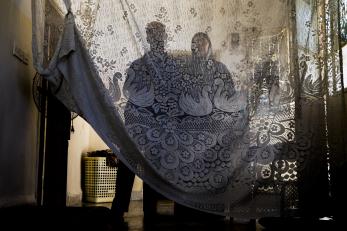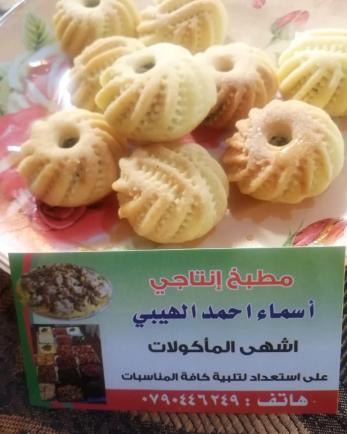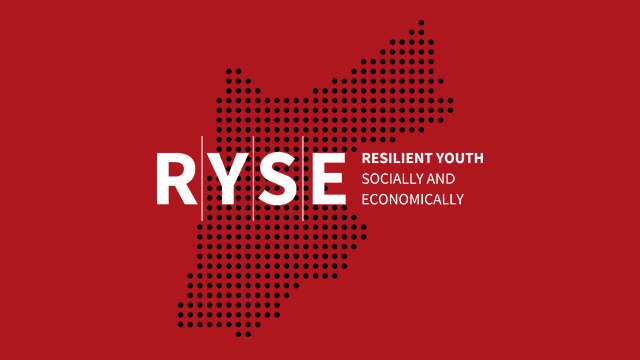The Graduation Approach: A new model to eradicate poverty in Jordan

In Jordan, every year 100,000 young people start the daunting search for work. With a youth unemployment rate of an unprecedented 48%, this is a daunting task. The situation for girls is particularly challenging, as Jordan has the third lowest female labor force participation rate in the world. Meanwhile, 84% of Syrian youth living in Jordan do not have work, and only 7% of Syrian women in Jordan are employed. Part of this is due to the mismatch between university graduates' skills and the demands of the labor market. Furthermore, although many Jordanian youths enroll in different vocational trainings to develop themselves, they end up with only slight improvements in livelihoods and employment opportunities, as most vocational training programs focus solely on providing their students with technical skills, but do not connect their graduates to the labor market, and ignore the necessary life skills.
On top of that, the majority of initiatives aimed at empowering youth economically focus on the individual rather than the multitude of spheres in which they live, the most significant of which is the household. Very few programs take a comprehensive approach to addressing their vulnerability, including issues of protection and legal concerns, access to financial instruments, psychosocial well-being, and market-driven skills training.
To address these challenges, Mercy Corps is part of a consortium that, under the Resilient Youth Socially and Economically (RYSE) project, pilots the Graduation Approach model. This model aims to address poverty from a holistic perspective among Syrian refugee and vulnerable Jordanian youth and their households. . The Graduation Approach comprises carefully sequenced interventions delivered at the household level over 24 months through different interventions which in order include: mentoring, social integration and linkages, financial literacy and savings, consumption support, core capacity building, technical skills training and livelihoods grants.
Participating households, as part of the consumption support intervention, are given cash consumption support that covers household essentials including food, medicine, utilities, and other basic needs to guarantee that each household can invest time and resources towards learning the skills needed to maintain productive livelihood alternatives. Furthermore, through the Financial Inclusion intervention, comprehensive financial literacy training encourages participants to save and integrate with appropriate financial services crucial for building resilience to shocks.
While most households have spent their consumption support fully on their basic needs, other households chose to save for future emergencies. Asma, a Syrian woman who lives in Mafraq, was one of those households.
Despite her limited ability to spend beyond basic necessities, Asmaa explained why she chose to save her consumption support, “The COVID‑19 pandemic helped us understand the need of saving money in case anything emerging occurs. What drove me to save more money was the financial distress my family faced throughout the pandemic”. Then she smiled and said, "You can't expect anybody else to have their emergency money box in one of the spice boxes" referring to a method she had learnt during training.

Asmaa has a real passion for cooking and baking. Three years ago, before joining the project, she began operating a home-based food production kitchen. Besides her specialization in Maamoul baking (a famous middle eastern shortbread cookie stuffed with date paste or chopped walnuts or pistachios), she is preparing a wide range of Middle Eastern cuisines. Asmaa was able to enhance her productivity and revenue by utilizing some of her consumption support to buy additional cooking/baking essential ingredients. She also was able to afford a larger refrigerator, which allowed her to store all the needed ingredients and keep them fresh for longer periods of time.
Asmaa is the mother of two boys and two girls. They used to help her run her small business, and their help increased as her business grew in productivity and sales after her participation in the RYSE project. Mohammed, her eldest son, is responsible for delivering the orders, while Shahd assists her in the kitchen and with decorating the Maamoul.
As the number of orders increased, so did the revenues. Asma was able to save more money. “I'm saving most of my revenues so I can cover all of the consumables and ingredients that I may need to fulfill any order volume, as I dream of expanding my project to become recognized across Mafraq and be able to fulfill all of their requests,” she said of her ambition to expand her small project. Her goal of expanding her business will be completed by purchasing bigger and more efficient equipment that will enable her to accommodate a higher number of orders and fulfill the special orders for any big event, as she told us.
Mercy Corps through its RYSE team will help Asmaa and all the participating households in achieving their dream projects by equipping them with livelihood skills and opportunities in addition to providing them with livelihood grants that allow for the purchasing of tools and equipment that generate a long-term earning potential. The livelihood grants intervention, which is currently underway, is a business or self-employment grant that provides an immediate injection of capital and value to the participant's livelihoods activity that significantly increases the household's earning capacity.
The RYSE (Resilient Youth, Socially & Economically) project is a flagship multi-stakeholder partnership counting Jordan River Foundation, Generations for Peace, Mercy Corps, INJAZ, and DRC (Danish Refugee Council) as lead agency. The Novo Nordisk Foundation is the grant holder. RYSE focuses on empowering 25,000 Syrian refugees and vulnerable young Jordanians affected by the Syrian crisis to become the much-needed positive change agents in a region marred by war and political instability. From 2020 through 2022 RYSE aims to build resilient futures.
